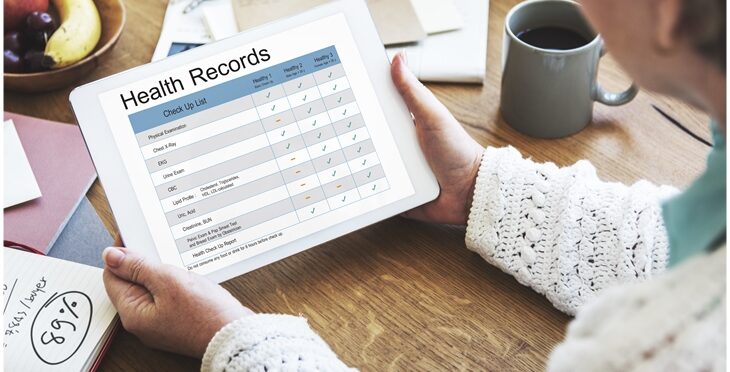Introduction to Digital Health
Digital health, also known as digital healthcare, is a broad, multidisciplinary concept. It encompasses ideas from the intersection of technology and medicine. Digital health is the application of digital transformation to the field of healthcare. It also includes software, hardware, and services. Mobile health apps, electronic health records, medical records are some examples of it. Also, wearable devices, telehealth, and telemedicine come under digital health.
Moreover, patients, practitioners, researchers, application developers, and medical device manufacturers and distributors are all stakeholders in the digital health field. Digital health is becoming increasingly important.
- Benefits of Digital Health Tools
- Responsive and Sustainable Healthcare
- Prevention Before Treatment
- Re-Modeling The Patient-Doctor Relationship
- Expanding The Reach Of Healthcare Professionals
- Centralize Patient Information For Better Management, Storage, and Access
- Create and Install Personalized Journeys for Patients
- Promote Medical Research and Development
- Empower Patients To Live A Healthier Lifestyle
- Applications of Digital Health Tools
Benefits of Digital Health Tools
Responsive and Sustainable Healthcare
Life expectancies have become longer. There is an increase in the number of people living with chronic diseases. This has caused rising healthcare costs that are also putting pressure on healthcare systems. Also, there is a growing trend toward digital health approaches in healthcare. Patients have faster access to health services thanks to digital health platforms. It improves the quality of care they receive. Also, with the concept of patient self-care, these platforms help reduce the burden on health care facilities.
Prevention Before Treatment
Digital health tech helps patients in managing their health conditions. Also, it's a tool for detecting significant changes in a patient's disease progression. Moreover, patients classified as "at-risk" will benefit from digital health platforms.
Re-Modeling The Patient-Doctor Relationship
There is the involvement of patients in the design of their own care and treatment plans. Also, the sense of partnership, trust, and transparency between patient and doctor rises. Moreover, there is quick, direct, and shared access to the patient's current health status. Important health factors are all logged in real-time. These are environmental stimulants, medication use, and medication adherence, etc.
In conclusion, this data presents a clear profile of the patient's condition's sensitivities.
Expanding The Reach Of Healthcare Professionals
The goal of digital health innovations is to reduce the administrative burden. It further aims to reduce monotonous aspects of healthcare professionals' jobs. This also gives them more time to interact with patients and track them. This is especially important for patients or clinics in rural areas. Also, it is good for home-care/outpatients for whom travel is difficult or not advised. Moreover, patients can provide their health information to their doctor at any time.
Centralize Patient Information For Better Management, Storage, and Access
Patient records, medical bulletins, patient medical histories all contain critical information. This info is critical to a patient's medical treatment and outcome.
Manually entering patient data takes time and can lead to errors. Also, paper-based file storage uses resources and takes up physical space. In the past, accessing a patient's files required browsing through file cabinets and checking each folder. Now, patient information is easy to access in real-time. This uses a desktop computer or mobile device, thanks to digital healthcare software. Also, access is provided to only those involved in patient care for added security.
Create and Install Personalized Journeys for Patients
Digital healthcare software solutions make it simple for medical professionals. The ease to centralize and access patient data has made healthcare tools popular.
Prescriptions, allergies, medical history, and other data are critical. They help medical professionals understand their patients' needs and design a personalized journey. Thus ensuring the best possible experience and almost predictable results.
Promote Medical Research and Development
Data from a patient, no matter how small, can be crucial in the future. Medical advancements use data gathered from all over the world.
Patient data is now collected, collated, verified. This data helps in the research and development of new drugs and treatments. All thanks to digital healthcare systems and other technologies.
The medical world can discover effective medicine to end serious illnesses with data. Moreover, large-scale epidemics like the Black Death should never happen again.
Empower Patients To Live A Healthier Lifestyle
Waiting for a diagnosis and test results can be confusing. It also becomes an aggravating and frustrating experience for most patients. In the healthcare industry, artificial intelligence (AI) can help patients achieve better outcomes. Also, it can speed up their diagnosis and also provide more accurate results.
There is smooth and frictionless communication between healthcare professionals and their patients. Digital healthcare software has made it possible. Moreover, doctors, therapists, and other healthcare workers can work closely with their patients. They can provide them with information about their health. This also helps patients make the best decisions and plan for a long life that they can enjoy.
Applications of Digital Health Tools
Mobile Applications To Detect And Prevent Health Issues
The use of devices such as smartphones and tablets delivers healthcare services. This is mobile health. People can track their heart rate and get alerts to anything out of the ordinary. Wearable devices like the Fitbit or Apple Watch help with this. Mobile technology is also used to access patient records and communicate with patients.
Health Information Technology
An electronic medical record is a version of a patient's medical history. It is maintained over time by a medical care provider and contains comprehensive medical information. This includes health issues, a list of prescribed medications, previous medical history, etc.
This technology helps healthcare providers in making accurate and informed decisions.
Moreover, electronic prescribing has simplified the medication prescription process. It replaces handwritten prescriptions with electronic prescriptions. Also, electronic prescribing improves accuracy, safety, and quality of care.
Telehealth And Telemedicine
Telemedicine and Telehealth refer to the use of IT services to gain remote access to healthcare services. It would also improve access to healthcare. It would be especially good for people who live in rural areas or have limited mobility. People can use their mobile phones to log their diet, medication, and their blood sugar levels. All this can be reviewed remotely by nurses. Virtual consultations with doctors are also possible through the use of video calls.
The Use Of Consumer Tech To Track And Manage Health Data
Wearable technology has become mainstream in recent years. Fitbit tracks the number of steps taken per day, heart rate, and sleep. It can also predict menstrual cycles and fertile windows for women. In an emergency, a wearable device could even save a life. After showing the alert on the screen, it can detect a fall. Also, it can contact emergency services if the wearer does not respond. Wearable health devices may also change how we approach long-term illnesses.
AI-Enabled Check-Ups
Artificial intelligence technology is getting integrated into health check-ups. Based on data, Selvy Checkup, an AI healthcare solution developed by Selvas AI. It predicts an individual's risk of major diseases developing in the next four years. Ten diseases are on the list of predictable diseases. Six of these are major cancers like breast cancer and liver cancer. The predictions come from data from medical exams as well as Selvas AI technology. Ada Health, a German company. It has released a free AI-powered app. It allows users to check their symptoms and seek appropriate treatment.
Conclusion
We are now aware of how digital health opens up new horizons and has become a global trend in medicine.
Digital health has the potential to help patients track and manage chronic conditions. While also preventing disease and lowering healthcare costs. It can also personalize medicine for each patient.
It is currently facing some obstacles in its implementation. These are a scarcity of qualified professionals and a lack of funding.
Institutions that choose to invest in digital health practices and integrate technology into their processes can stand out in the market and achieve positive results.





